Bookkeeping Training Course
Bookkeeping Training Course in Singapore
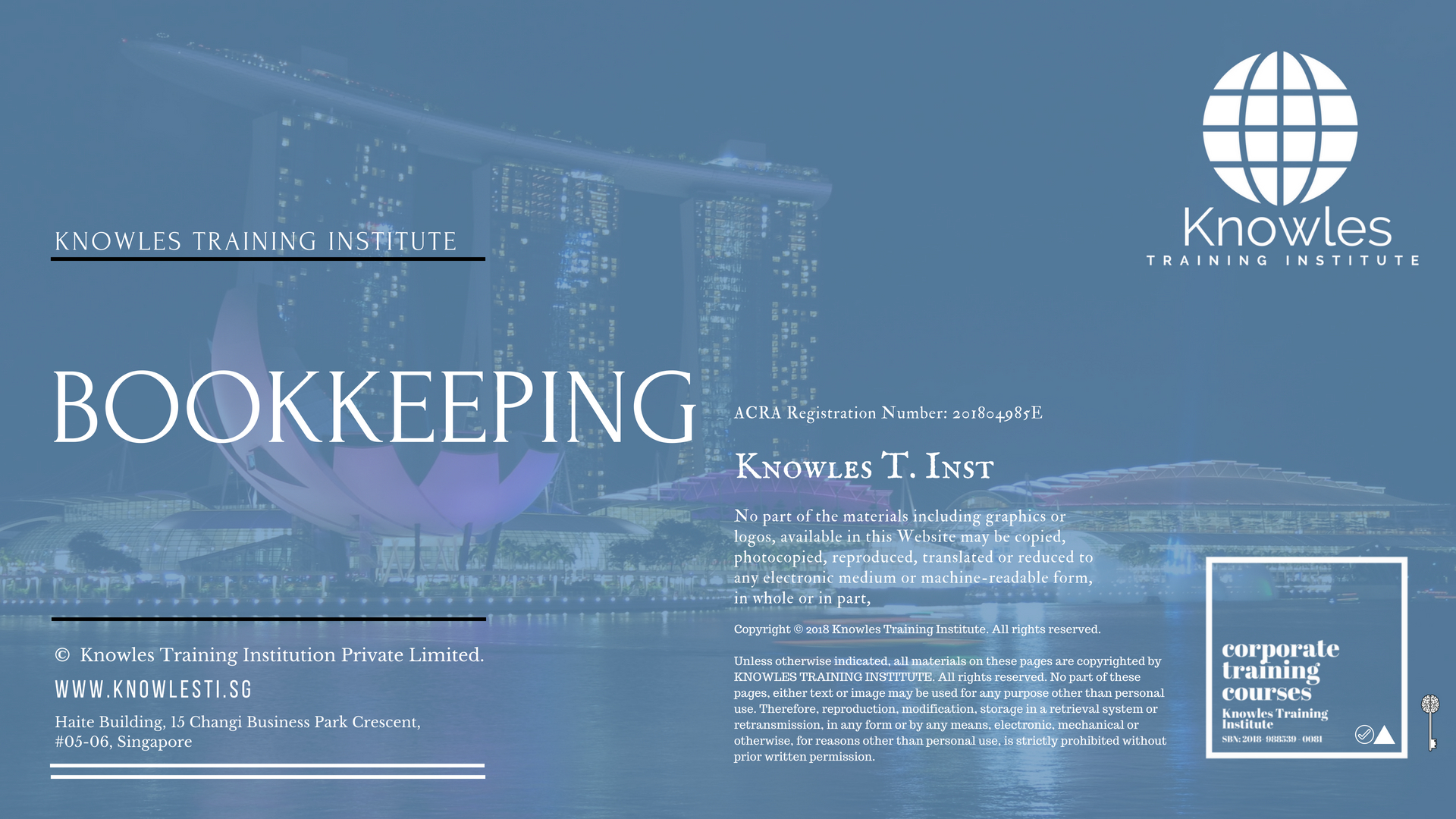
About This Bookkeeping Training Course
Bookkeeping Program in Singapore
Bookkeeping Training Course is the practice of recording and storing any financial transactions or activities for the purpose of confirming individual expenses and monitoring financial flow. With proper and accurate bookkeeping, any inquiries and doubts about spending can be easily traced to the spender. Bookkeeping skills are essential in accounting and finance.
Who Should Attend This Bookkeeping Training Workshop
This Bookkeeping Training Course is ideal for anyone who would like to gain a strong grasp and improve their Bookkeeping.
All Staff Within An Organisation
Managers
Team Leaders
Executives
Assistants
Officers
Secretaries
Group Size For This Bookkeeping Training Program
The ideal group size for this Bookkeeping Training course is:
Minimum: 5 Participants
Maximum: 15 Participants
Course Duration For This Bookkeeping Training Program
The duration of this Bookkeeping Training Course is 2 full days. Knowles Training Institute will also be able to contextualised this workshop according to different durations; 3 full days, 1 day, half day, 90 minutes and 60 minutes.
2 Full Days
9 a.m to 5 p.m
Bookkeeping Training Program Objectives
Below is the list of course objectives of our Bookkeeping Training course
Understand the key roles of a bookkeeper
Learn the basic tasks of a bookkeeper in a given business operation
Develop basic knowledge on how to manage accounting records
Gain understanding on how to manage debit and credit
See the usage of the Nominal Ledger
Learn how to use the Balance sheet
Develop the necessary skills to reconcile accounts
Acquire the necessary skills on how to manage employee salaries and benefits
Gain the ability to practice effective Tax Deduction
Address the proper calculating technique in Value Added Tax
Preparing a trial balance
Manage profits and expenses effectively
Course Content For This Bookkeeping Training Course
Below is the list of course content of our Bookkeeping training Program
What is a Bookkeeper?
Task and responsibilities of a Bookkeeper
How to manage accounting records
The rules of Debit and Credit
Using the Nominal Ledger
How to use the balance sheet?
Effective Reconciliation of Accounts
Managing the Salaries Benefits of Employee’s
Proper ways of Calculating Tax Deduction
Calculating Value Added Tax of Products
Creating a Trial Balance
Balancing Profits versus Expenses
Bookkeeping Training Course Value Added Materials
Each participant will receive the following materials for the Bookkeeping Training Program
Bookkeeping Learner’s Guide
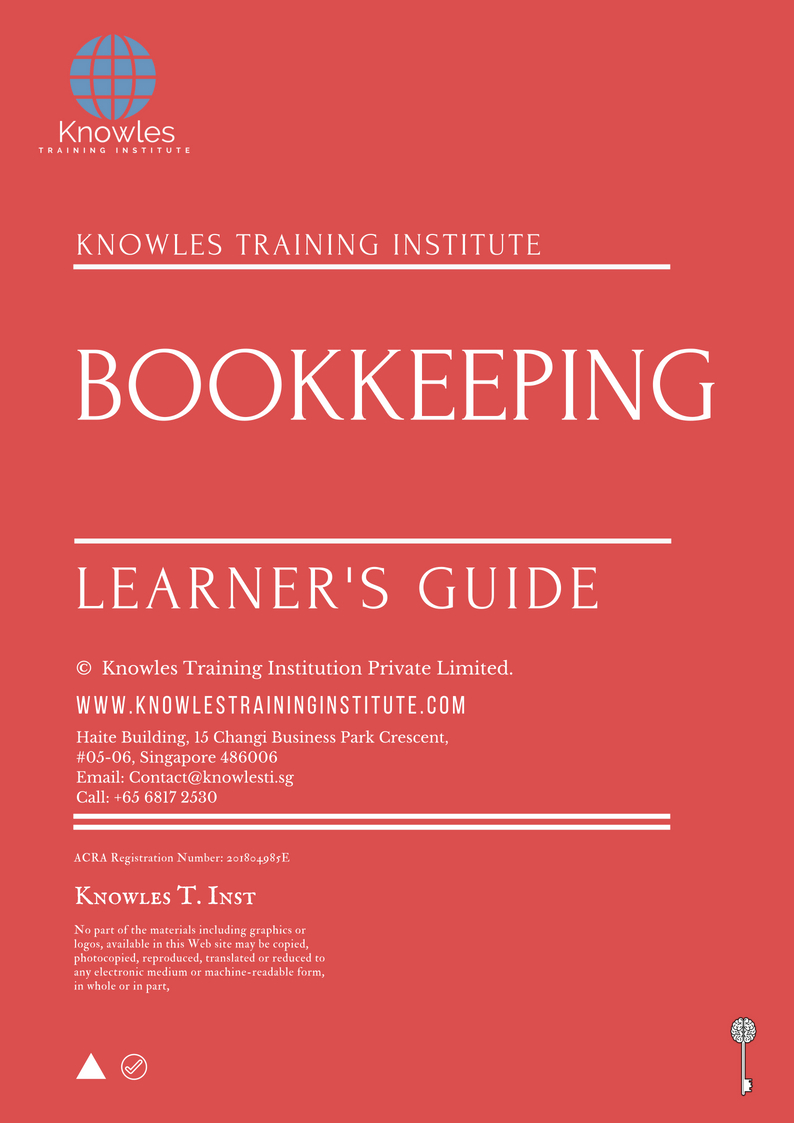
Bookkeeping Key Takeaways Notes
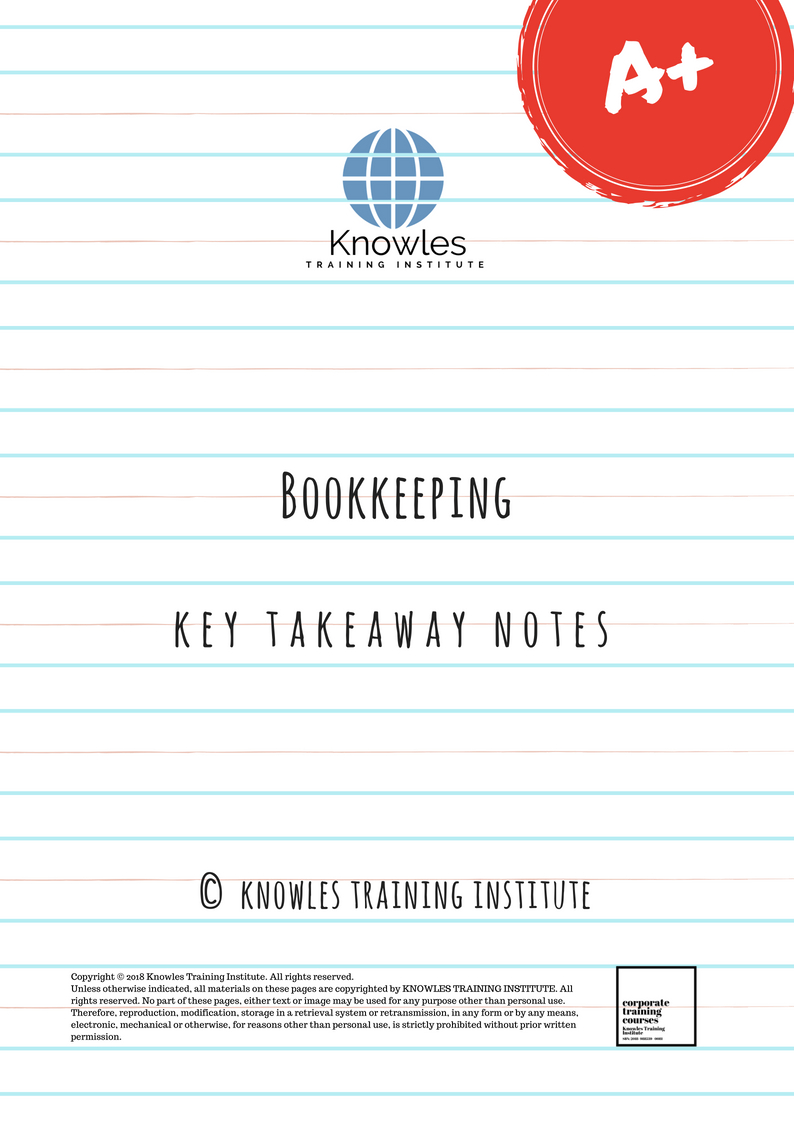
Bookkeeping
Essentials Ebook
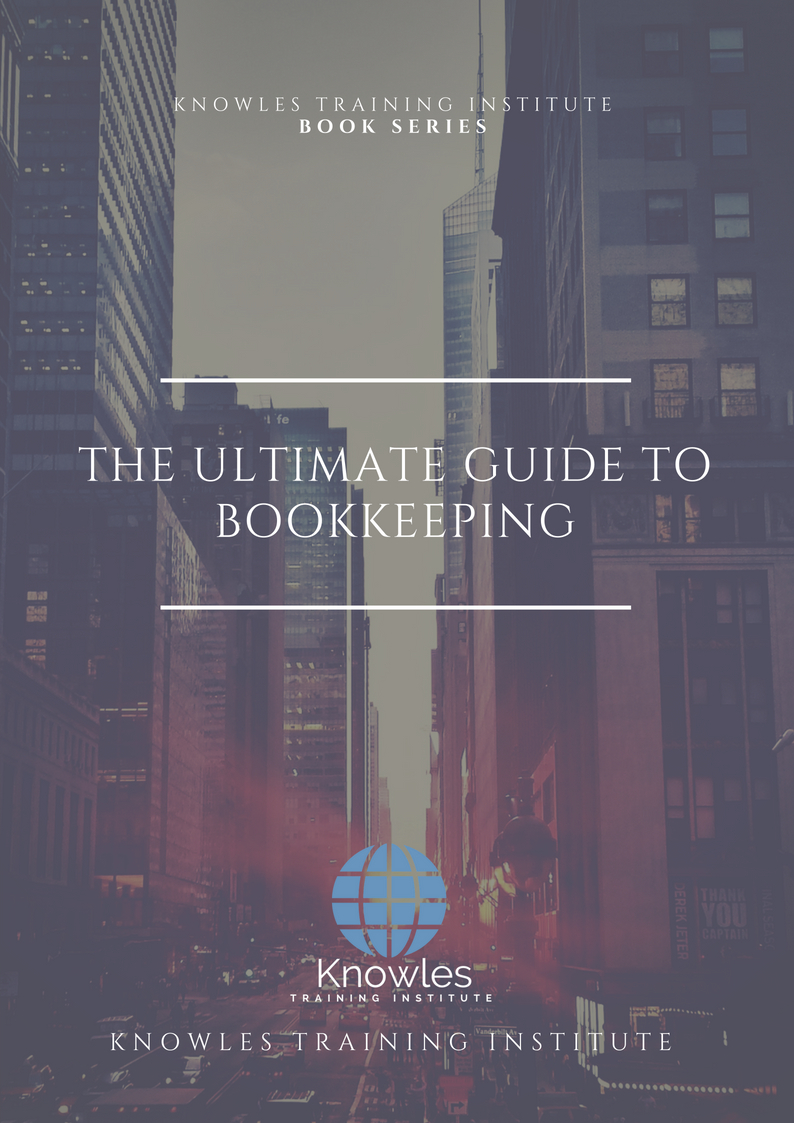
Bookkeeping Course Handouts
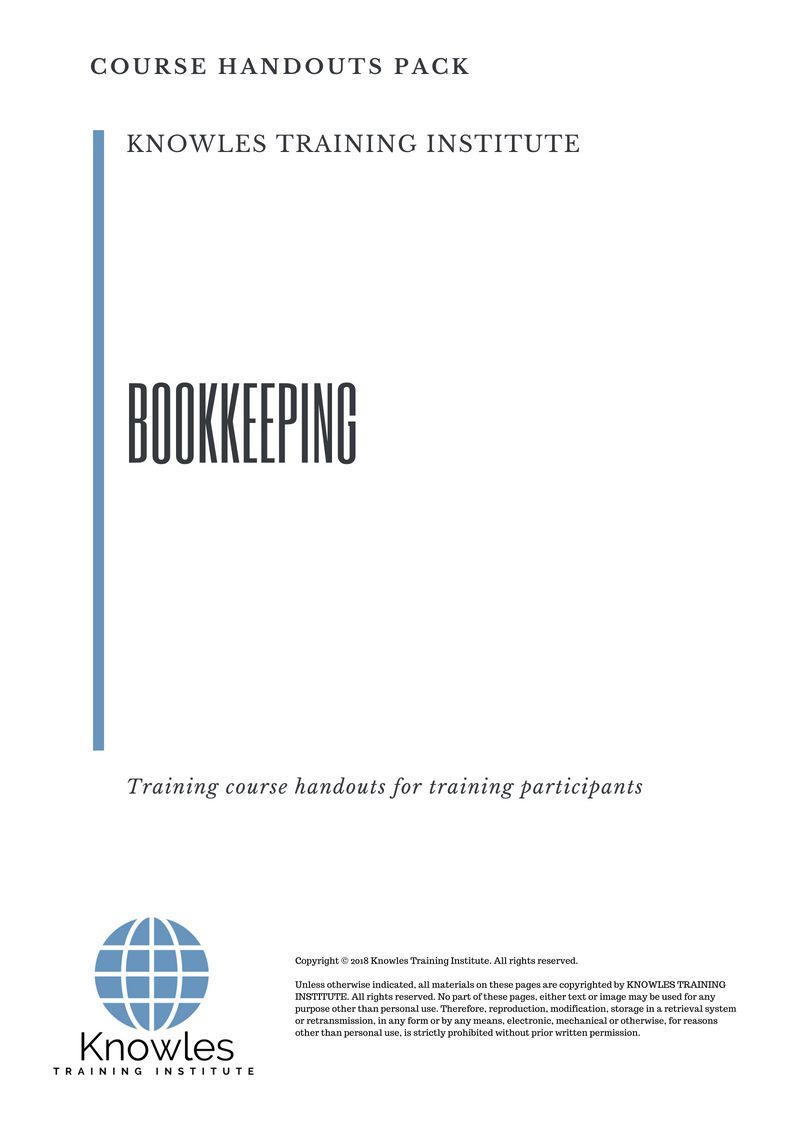
Bookkeeping Course 30-Day Action Plan
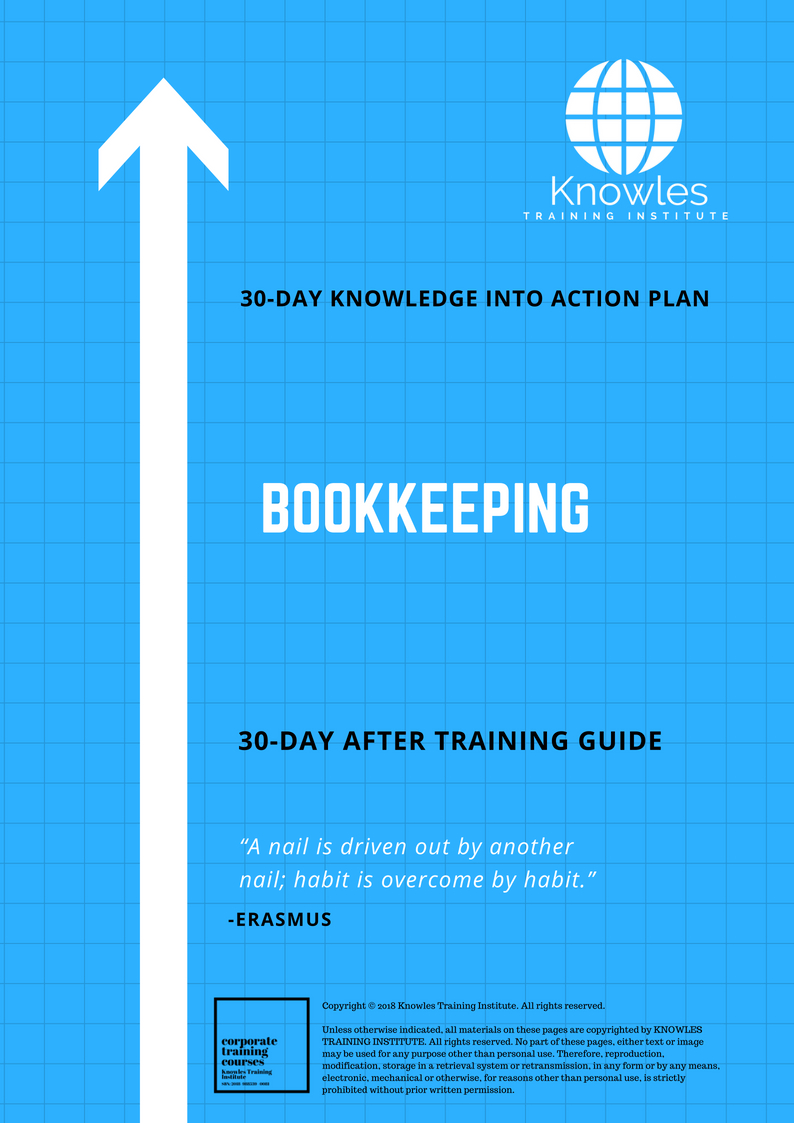
Bookkeeping Course
MindMaps Pack
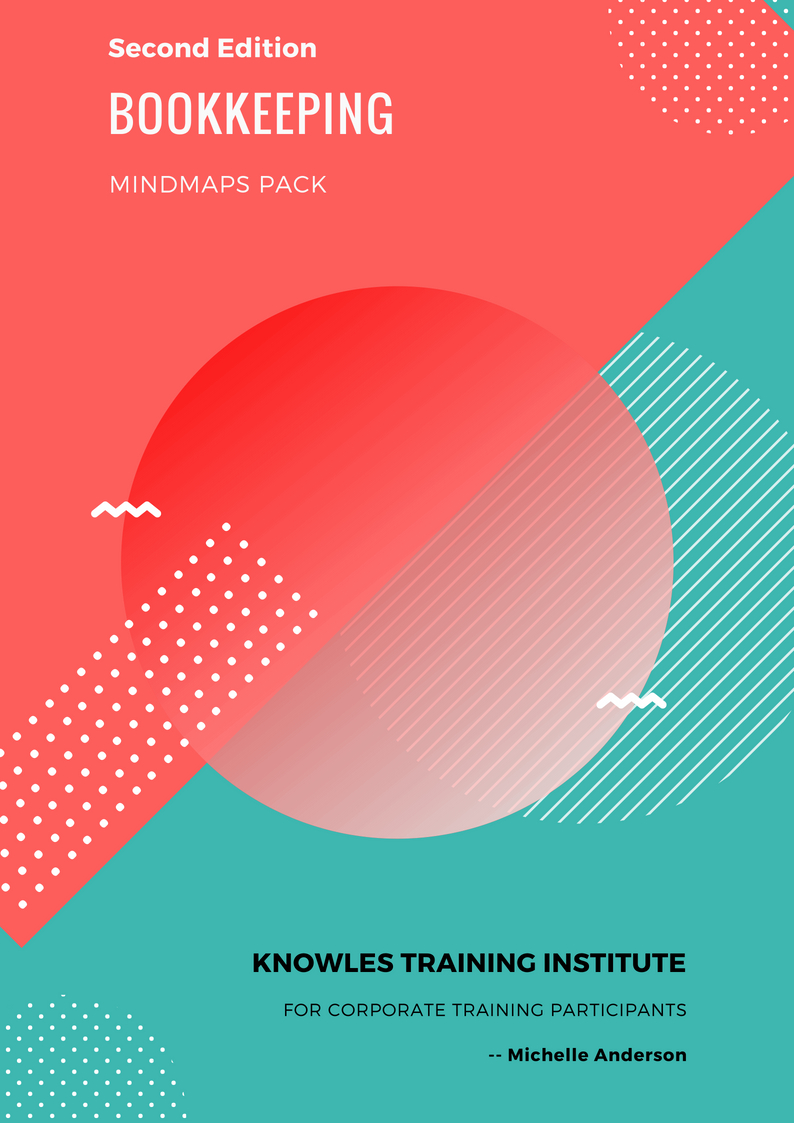
Bookkeeping Course PPT Slides Used During Course
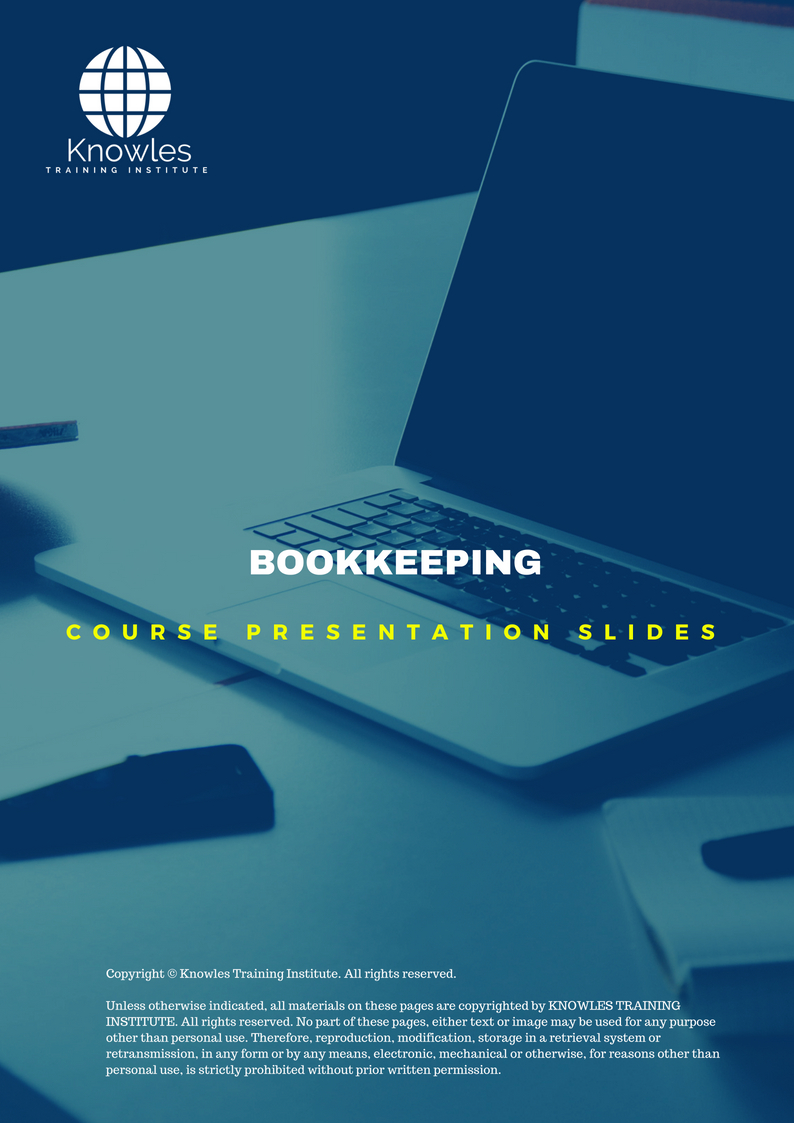
Bookkeeping Course Long-Term Memory Flashcards Pack

Bookkeeping Course E-Learning Course

Bookkeeping Online Video Course

Bookkeeping Course
Essentials Audiobook

Bookkeeping Course
Infographics Pack
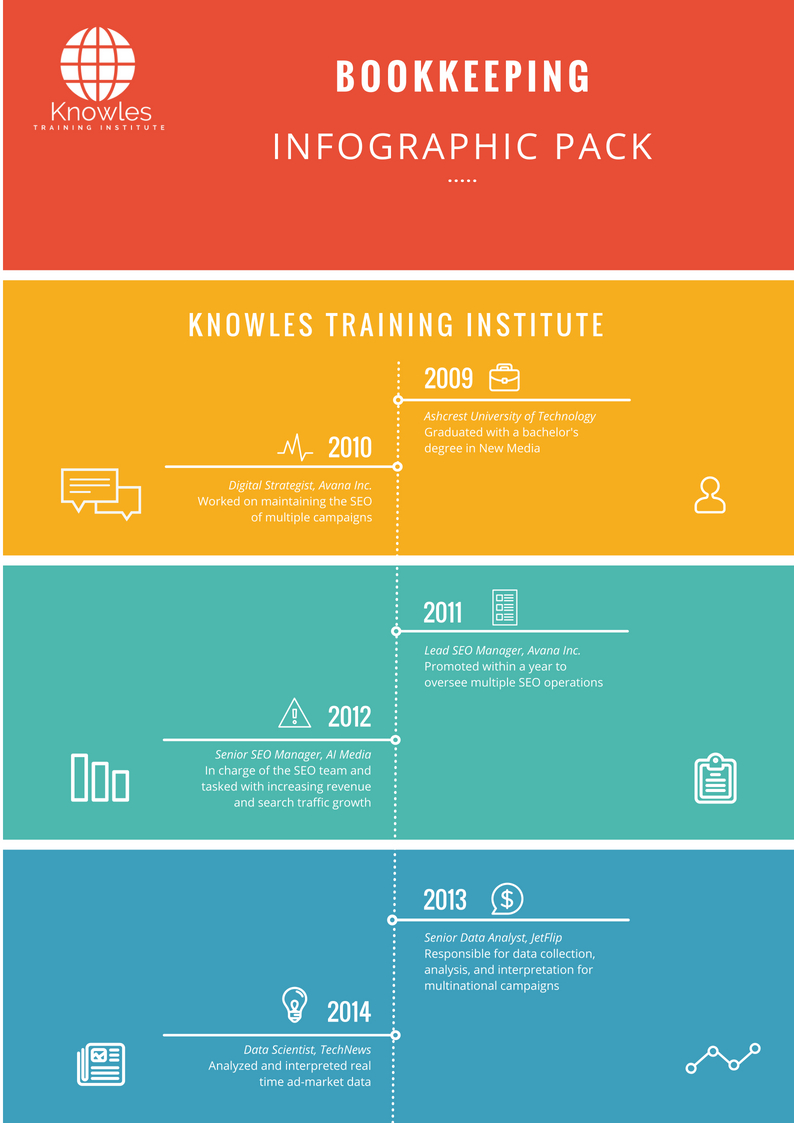
Bookkeeping Training Course Certification
Each course participant will receive a certification of training completion
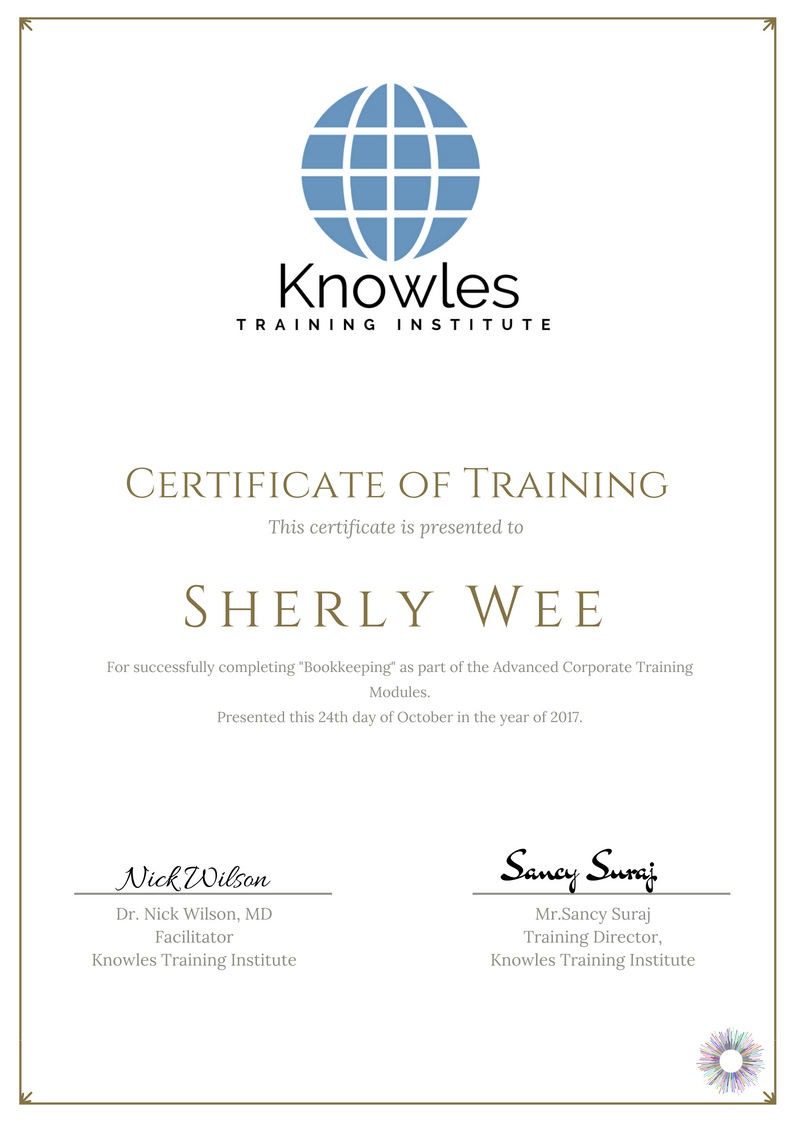
Course Fees
There are 4 pricing options available for this Bookkeeping training course. Course participants not in Singapore may choose to sign up for our online Bookkeeping training program.
- USD $1,334.96 For a 60-minute Lunch Talk Session.
USD $584.96 For a Half Day Course Per Participant.
USD $884.96 For a 1 Day Course Per Participant.
USD $1,184.96 For a 2 Day Course Per Participant.
Discounts available for more than 2 participants.
Upcoming Bookkeeping Training Program Schedule
Contact us for the latest Bookkeeping Course schedules:
Phone: +65 6714 6663
Email: contact@knowlesti.com
Message:
Download Bookkeeping Training Course Brochure
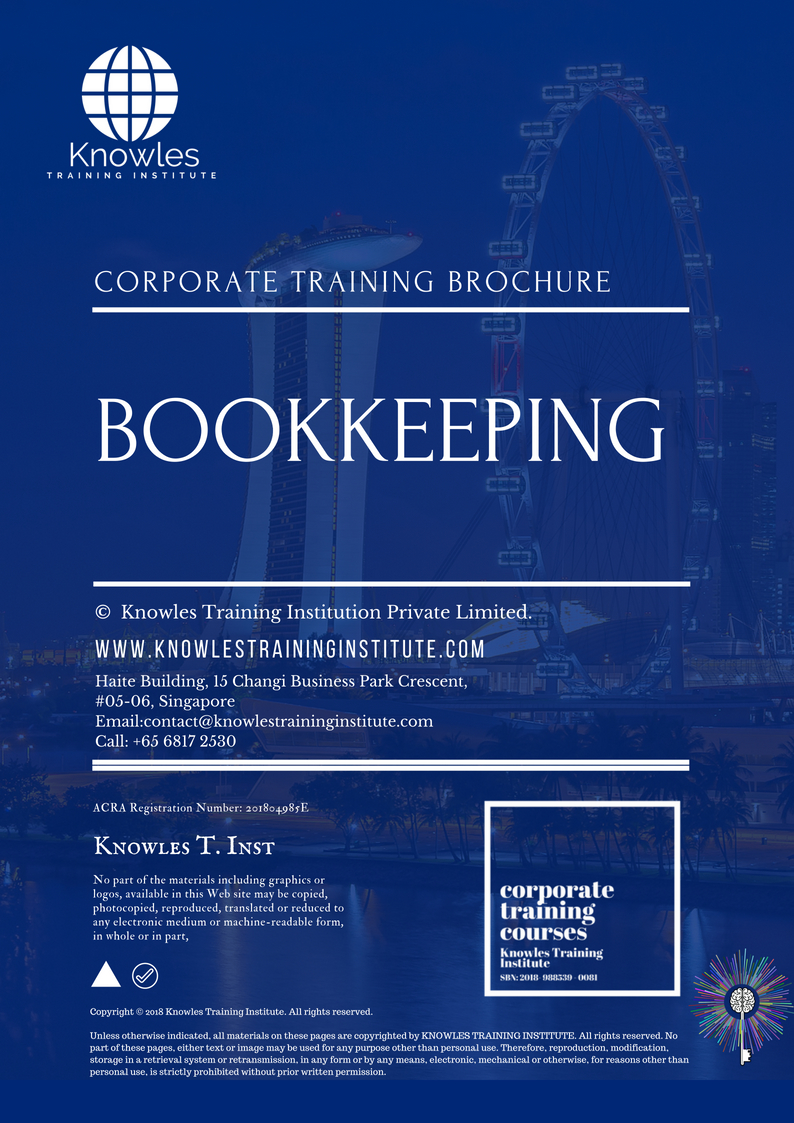
Request for this Bookkeeping training program brochure. Fill up the short information below and we will send it to you right away!
Post-Training Support: A vast majority of training does not have any effect beyond 120 days. But to work, training has to have a strong pre- and post-training component. Post-training reinforcement consequently helps individuals to recall the understanding and ask questions.
Blended Learning: Learning does not occur in the classroom. Virtually everybody prefers distinct ways of learning. Successful learning should have a multi-channel, multi-modal strategy.
We Understand The Industry: Similarly, we’ve got a profound comprehension of the business, business design, challenges, strategy and the that our participants are in and have designed the courseware to cater to their professional needs.
Course Content: Knowles Training Institute’s material is relevant, of high quality and provide specific learning outputs. As a result, Participants will leave the training course feeling as they have gained a strong understanding and will also be in a position to execute what they have learned sensibly.
Course Development — The workshop modules follow a systematic and logical arrangement. Therefore, this structure helps to ensure that the course material allows the facilitators to deliver the course in a logical arrangement. Consider the subjects as building bricks into learning, our facilitators slowly build towards a comprehensive picture of this entire topic.


Course Enquiries

Fill up the form and we will get back to you in less than 1 working day.
Alternatively, give us a call to have one of our training consultants contact you. Our corporate training courses can be contextualized to meet your organization’s training needs. Leverage on our large pool of professional trainers and consultants for your organization’s training needs.
Office Address: 60 Paya Lebar Rd, #07-54 Paya Lebar Square, Singapore 409051
Office Phone: +65 6714 6663
Email: contact@knowlesti.sg
We Guarantee 100% Privacy. We Respect Your Privacy. Your Information Will Never Be Shared.


